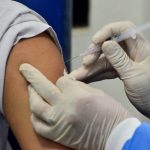The novel coronavirus has spread rapidly around the globe, infecting more than 100 million people and killing more than two million, with the toll rising daily. There are more than 25 million cases of COVID-19 and more than 450,000 deaths in the United States alone. Meanwhile, new coronavirus variants originating from Brazil, South Africa, and the United Kingdom that appear to be even more transmissible are spreading rapidly and have been found in many countries, threatening to undermine vaccine effectiveness and to increase the already staggering death toll.
The development and distribution of effective COVID-19 vaccines provides much-needed hope in an era increasingly defined by sickness, death, and economic instability. At the same time, vaccine allocation and distribution are reinforcing deeply ingrained domestic and global inequities and threatening the health and rights of health care and other essential workers, as well as marginalized populations. A shocking number of health care workers still do not have basic workplace safety protections or access to the equipment they need. Such conditions force them to take on unnecessary, unjust, and disproportionate risk to themselves and their families. In many countries, despite a seeming consensus that health care workers should be prioritized in vaccine distributions, many will not receive vaccines until 2022 or even 2023. Some are facing attacks and abuse merely for speaking out in defense of a basic level of safety and human rights protections for themselves and others.
Marginalized and historically disadvantaged populations are also being left behind. In the United States – which has the highest global rates of incarceration – people in federal, state, and local prisons are often unable to follow public health mitigation measures, and are provided inadequate treatment and care. Asylum seekers and immigrants who have committed no crime are unnecessarily and unjustly detained without adequate protection and care, and in many cases face threats and abuse that reinforce their traumas. Globally, low- and middle-income countries in Africa and across the world are at risk of being excluded from vaccine distribution, as are refugees and populations in conflict zones. Without concerted action, the selective and discriminatory distribution of COVID-19 vaccines will reinforce global inequities, compromise critical rights protections, and fail to stop the global pandemic from spreading.

